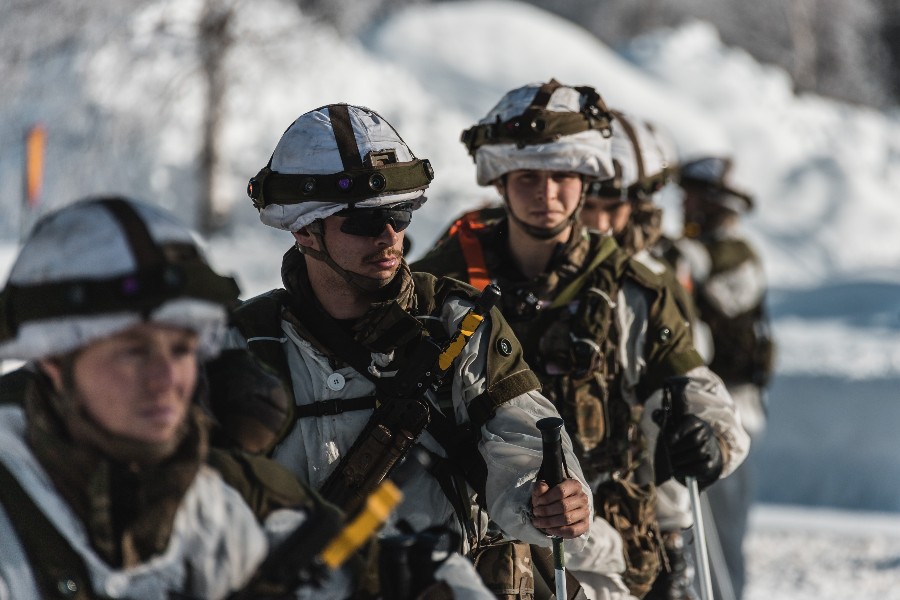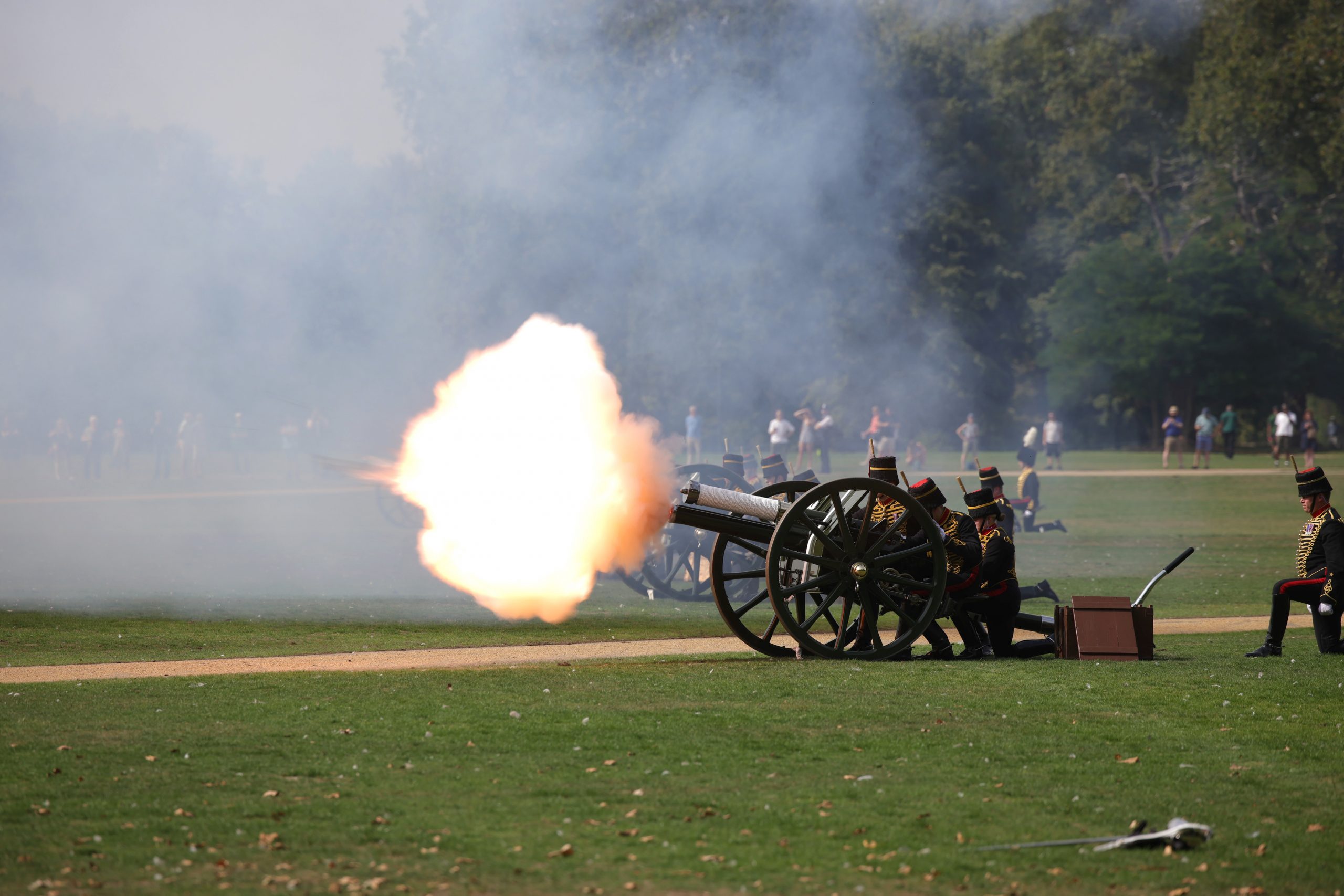
Months of intensive training for Britain’s winter warfare specialists reached its climax as Royal Marines went into battle with their Scandinavian counterparts in the Arctic snow…
Some 350 Royal Marines from 40 Commando in Taunton joined Norwegian troops and US Marines in a week-long mock battle trying to invade Swedish territory – with the hosts and Finnish troops blocking their way. Exercise Northern Wind is the largest military exercise involving NATO and partner nations this winter, played out by upwards of 10,000 troops.
The Royal Marines – Britain’s experts in cold weather warfare – spent the opening weeks of 2019 acclimatising to conditions in the Arctic around Bardufoss in northern Norway, before learning how to fight in sub-zero temperatures.
With the Norwegians and Americans, they helped form a 5,000-strong force which then had to be shipped 800km from Norway to the exercise area on the Swedish-Finnish border; it took 17 trains, 59 vehicle convoys and 75 buses to ship all the troops and their equipment ready for ‘Battle of Eastern Norrbotten’.
The exercise was intended to enhance the Swedish Army’s ability to defend the country from an attack in the high north. Swedes stood shoulder-to-shoulder with Finnish troops, using armour and motorised infantry to fend off the attacking Norwegian-led battle group in sub-zero temperatures.
“The forces were ‘fighting’ in some of the most challenging conditions in the world,” explained Lieutenant Simon Williams of 40 Commando, based at Norton Manor, near Taunton. “The snow was waist deep, conditions were freezing and the alpine forests dense. So movement was tough – but the Royal Marines are trained to exploit this environment.”
On skis or in their Viking armoured vehicles, they tried to outflank their foes, ‘fighting’ alongside Norwegonnaissance specialists. The commandos have also spent much of this winter passing on their Arctic knowledge and experience to the US Marine Corps – something which paid off as the two marines corps ‘fought’ side-by-side in the Swedish snow.
“I think it is extremely import training out here in these harsh conditions; you see the Marines Corps and your first thought of them is as hot weather specialists,” said Corporal Brandon Burrows of the US Marine Corps. “Our transition towards working in cold weather is vital. It has also been great as a leader to learn from our allied forces.”
Lieutenant Williams said the 350 marines would return to Somerset at the very top of their game after their extensive – and intensive – Arctic workout.
















